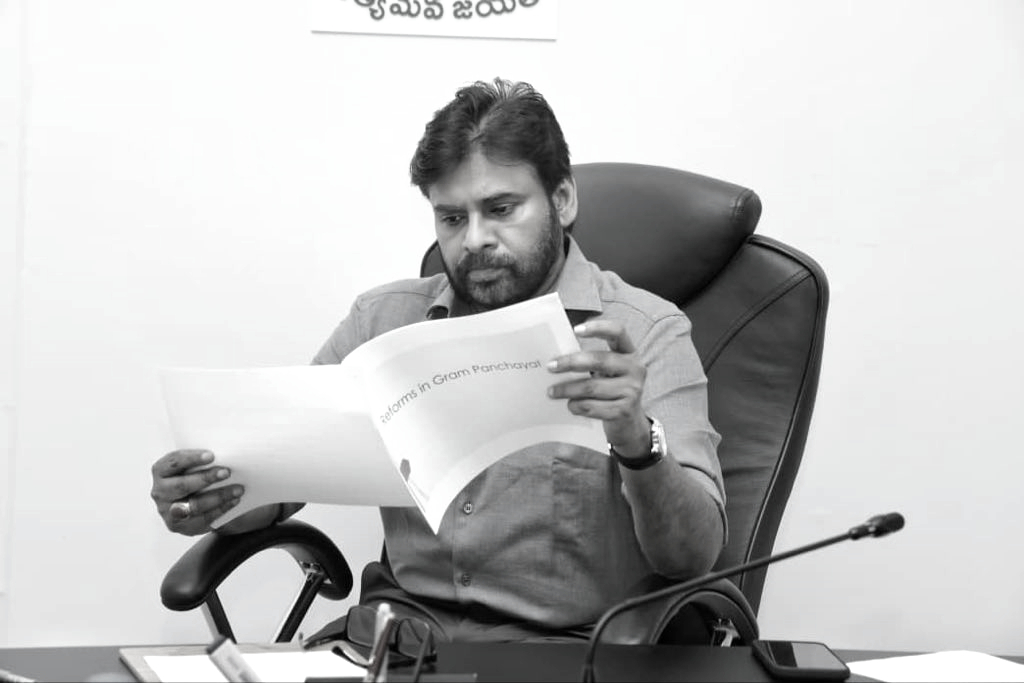
District Development Officer (D.D.O.) offices commences from Nov 1st: AP deputy CM
Amid a major push for grassroots governance reforms, the Andhra Pradesh government has officially abolished the cluster system, making all 13,351 village panchayats independent units. The move, announced by Deputy Chief Minister and Panchayat Raj Minister Pawan Kalyan, aims to strengthen local self-governance and ensure that development benefits reach rural communities more efficiently.
Deputy CM Pawan Kalyan, during a meeting with senior Panchayat Raj officials on Thursday, instructed the District Development Officer (D.D.O.) offices across the state commence operations from November 1. He emphasized that employees of the Panchayat Raj department have a responsibility to ensure that the reforms translate into tangible benefits for villagers.
From Clusters to Independent Panchayats
Previously, Andhra Pradesh followed a cluster system in which multiple village panchayats both major and minor were grouped together under a single administrative unit. Each cluster, typically comprising 5–10 villages, was overseen by a Cluster Panchayat Officer who managed fund allocation, project approvals, and record-keeping. While major panchayats enjoyed some autonomy, minor panchayats were heavily dependent on cluster offices, often resulting in delays in fund utilization and project implementation.
Under the new system, every panchayat, whether major or minor, will operate independently. Major panchayats, usually located in semi-urban areas with populations exceeding 5,000, will continue to manage larger development projects. Minor panchayats, often in remote or sparsely populated villages, now have direct access to funds and administrative authority.
A “Before vs After” comparison clearly illustrates the change:
Before: State → District → Cluster → Village Panchayats → Citizens After: State → District → Village Panchayats → Citizens
This direct line of authority is expected to enhance accountability, transparency, and service delivery.
Financial empowerment through 15th finance commission grants
Panchayats are also set to benefit from the 15th Finance Commission (2021–26), which provides grants for operational expenses, civic amenities, and development projects. Andhra Pradesh is expected to receive approximately ₹5,250 crore for its panchayats, including ₹4,200 crore in basic grants and ₹1,050 crore in performance-linked grants. These funds can be utilized for salaries, infrastructure, sanitation, roads, water supply, and digital tools to improve governance.
Deputy CM Pawan Kalyan urged officials to formulate innovative plans for achieving financial self-sufficiency at the village level while effectively utilizing both state and central government resources. He also instructed senior officials to conduct regular reviews of fund utilization and development program implementation, ensuring that no financial constraints hinder village-level projects.
Major vs Minor Panchayats in Andhra Pradesh
The state has 13,351 gram panchayats, divided into major and minor categories based on population and administrative significance:
• Major Panchayats: Population above 5,000; examples include Rajahmundry, Guntur, Kadapa, Pedagantyada, and Rayachoti.
• Minor Panchayats: Population below 5,000; examples include Kalakada, Pileru, Vempalli, and Koilkuntla.
Previously, minor panchayats were heavily reliant on cluster offices for approvals and funds. With the abolition of the cluster system, all panchayats now have direct access to funding under state schemes, central programs, and 15th Finance Commission grants.
Palle Pandaga 2.0 and Village development
The Deputy CM highlighted the role of the Palle Pandaga 2.0 initiative in driving rural development. Officials have been instructed to submit comprehensive plans for village-level development programs, ensuring that infrastructure, health, education, and livelihood schemes are effectively implemented.
While some other states like Kerala, Karnataka, and Himachal Pradesh have empowered village panchayats with financial and administrative autonomy, Andhra Pradesh’s reform abolishing the cluster system for all 13,351 panchayats at once is one of the largest full-scale implementations in India.
Deputy CM Pawan Kalyan stressed that the coalition government has adopted a highly positive approach toward fund mobilization and governance reforms. He urged all officials to play a proactive role in delivering results to villages, thereby strengthening democracy at the grassroots level.
The abolition of the cluster system and the move toward independent panchayats represent a significant step in decentralizing governance in Andhra Pradesh. With enhanced financial autonomy, direct fund access, and a clear administrative hierarchy, the reforms are expected to accelerate development and improve service delivery across all 13,351 village panchayats
